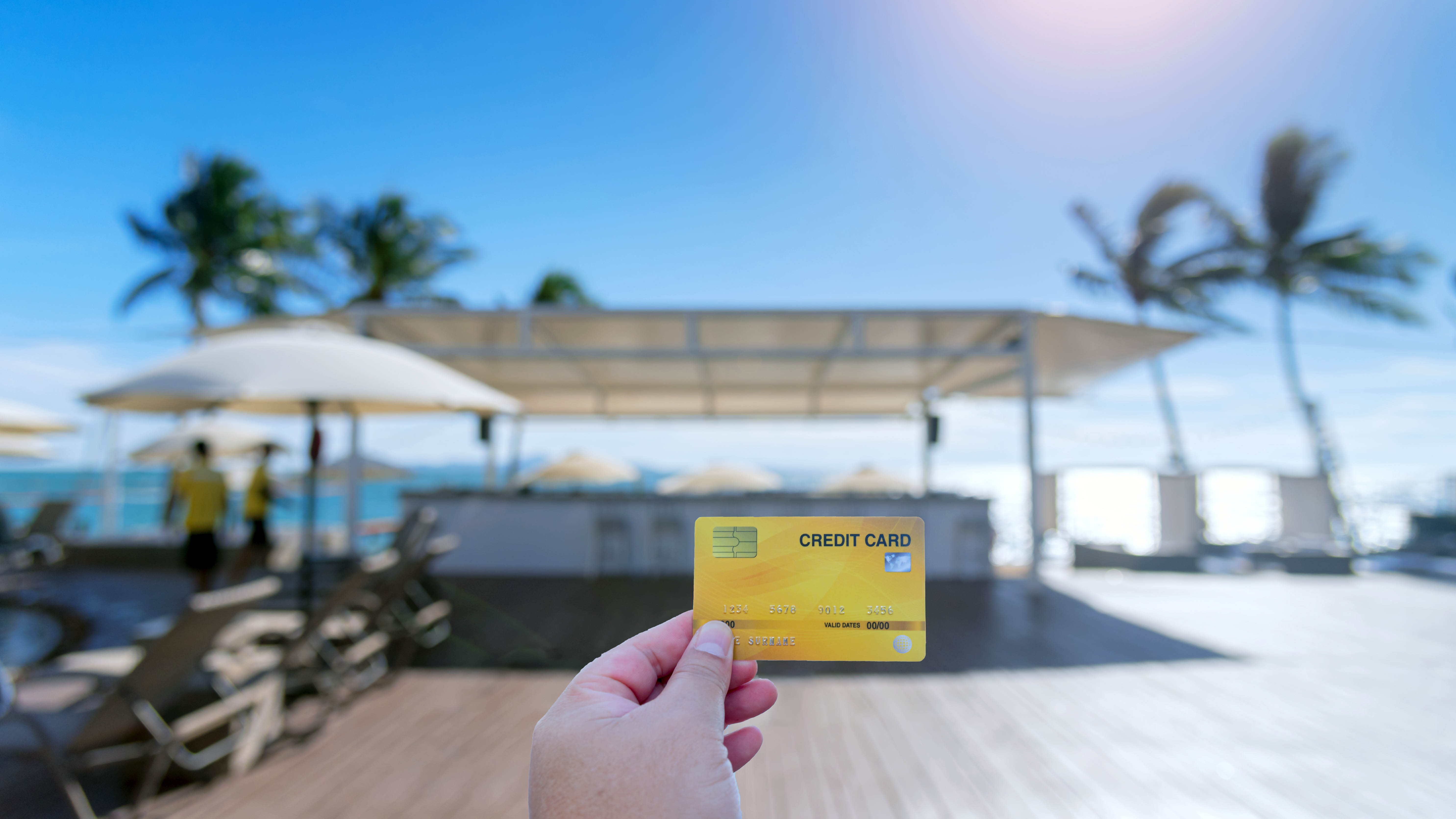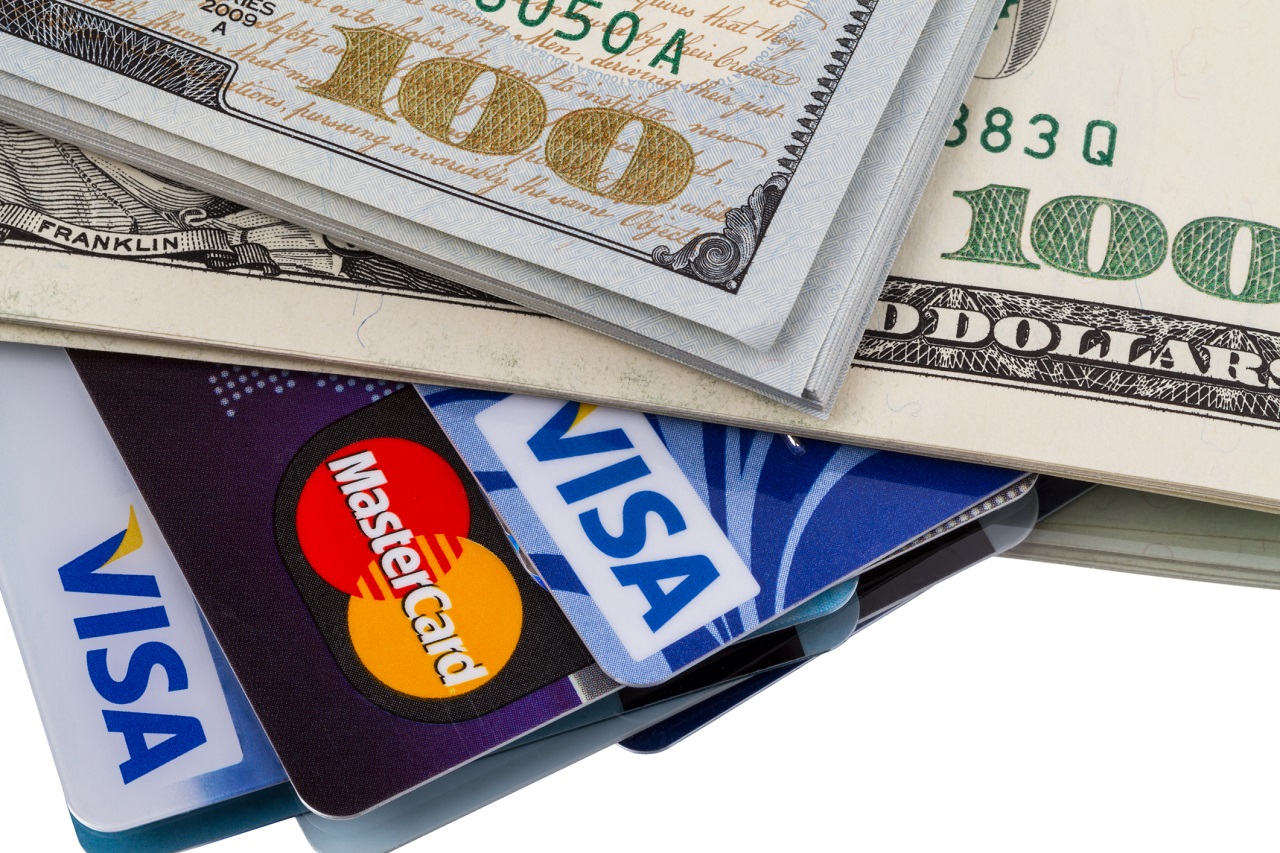Get the Most Benefit from Credit Card Perks
Credit card perks like travel insurance, delivery discounts and fraud protection can save you money and avoid stress.


Profit and prosper with the best of Kiplinger's advice on investing, taxes, retirement, personal finance and much more. Delivered daily. Enter your email in the box and click Sign Me Up.
You are now subscribed
Your newsletter sign-up was successful
Want to add more newsletters?

Delivered daily
Kiplinger Today
Profit and prosper with the best of Kiplinger's advice on investing, taxes, retirement, personal finance and much more delivered daily. Smart money moves start here.

Sent five days a week
Kiplinger A Step Ahead
Get practical help to make better financial decisions in your everyday life, from spending to savings on top deals.

Delivered daily
Kiplinger Closing Bell
Get today's biggest financial and investing headlines delivered to your inbox every day the U.S. stock market is open.

Sent twice a week
Kiplinger Adviser Intel
Financial pros across the country share best practices and fresh tactics to preserve and grow your wealth.

Delivered weekly
Kiplinger Tax Tips
Trim your federal and state tax bills with practical tax-planning and tax-cutting strategies.

Sent twice a week
Kiplinger Retirement Tips
Your twice-a-week guide to planning and enjoying a financially secure and richly rewarding retirement

Sent bimonthly.
Kiplinger Adviser Angle
Insights for advisers, wealth managers and other financial professionals.

Sent twice a week
Kiplinger Investing Weekly
Your twice-a-week roundup of promising stocks, funds, companies and industries you should consider, ones you should avoid, and why.

Sent weekly for six weeks
Kiplinger Invest for Retirement
Your step-by-step six-part series on how to invest for retirement, from devising a successful strategy to exactly which investments to choose.
The content on this page is accurate as of the posting date; however, some of the offers mentioned may have expired.
The credit cards in your wallet are packed with insurance, identity-theft protection and a slew of perks — including exclusive access to concerts and sporting events, discounts on products and services, and free memberships. But keeping track of all of these credit card benefits isn’t always easy because some perks come from your card network and some come from your card issuer — and the benefits vary depending on which plastic you’re packing.
See Kiplinger's Best Rewards Credit Cards
Banks, credit unions and other financial institutions interact with four card networks: American Express, Discover, Mastercard and Visa. Generally, these networks have tiered benefits connected with certain cards. For example, Visa Signature cards offer more benefits than traditional Visa cards, including extended warranty protection and various travel-related benefits. Mastercard works similarly — World and World Elite cardholders have more benefits than standard Mastercard holders.
However, an issuer can still pick and choose which benefits to offer potential cardholders, says Senitra Horbrook, credit cards editor at The Points Guy, a consumer travel website. For example, the Chase Sapphire Preferred card has the same long list of travel and purchase protections as a Visa Signature card. But the Chase Freedom Unlimited card, which is available as a Visa Signature card, doesn’t have the same benefits, because Chase decided not to make them available for that card.
From just $107.88 $24.99 for Kiplinger Personal Finance
Become a smarter, better informed investor. Subscribe from just $107.88 $24.99, plus get up to 4 Special Issues

Sign up for Kiplinger’s Free Newsletters
Profit and prosper with the best of expert advice on investing, taxes, retirement, personal finance and more - straight to your e-mail.
Profit and prosper with the best of expert advice - straight to your e-mail.
American Express and Discover act as both network and issuer. American Express offers travel insurance, purchase protections and other services, but Discover axed those benefits in 2018 and has not restored them.
Below we’ve gathered a list of valuable credit card perks and protections. To see which benefits come with your card, check your card benefits guide on the issuer’s website.
Travel Help
With delays and cancellations for air travel worse than ever — especially during the winter storms, your card’s travel insurance could cover various elements that could go wrong with your trip.
Insurance for trip cancellation or interruption kicks in if your prepaid or nonrefundable flight is canceled or your trip is cut short due to events that are out of your control — think severe weather, mechanical failure, or a medical emergency —and it’s considered a covered event under your policy. An expansive policy may also reimburse you for prepaid hotel costs. All coverage is secondary to any reimbursement you get from the airline or hotel, and you’ll need to keep detailed receipts to ensure a successful claim. If you’re unsure of what’s covered, call your issuer.
Although the coverage limits vary, you will generally get the most-comprehensive insurance benefits with travel credit cards that have annual fees. For example:
- The no-fee Chase Freedom Unlimited Visa card comes with coverage for trip cancellation or interruption for up to $1,500 per person and $6,000 per trip for non-refundable passenger fares.
- the Chase Sapphire Preferred Visa ($95 annual fee) ups the limits to $10,000 per person and $20,000 per trip for fares as well as other nonrefundable expenses, such as hotels and tours. This card also offers baggage-delay insurance and trip-delay reimbursement.
Your card may also offer benefits that can get you through airport security or customs quicker. Several travel cards offer a statement credit to cover TSA PreCheck ($85 every five years) or Global Entry ($100 every five years). As a bonus, your card may cover you for CLEAR ($189 a year), the biometric identification scanner at the airport, in full or at a discounted rate.
Your card issuer wants to be your travel agent, too. For example, American Express, Bank of America, Capital One and Chase all have travel portals where cardholders can book flights, hotels, rental cars and more by using their credit card or by redeeming the points and miles they have earned. And card issuers are providing incentives for card members to do so. The Capital One Venture Rewards Visa ($95 annual fee), for example, gives cardholders five miles per dollar spent on travel booked through Capital One Travel, through May 16, 2023. Before signing up, make sure you understand how best to use credit card portals to book travel.
If you decide to book a rental car either through your credit card travel portal or directly with a rental car company, you may also have rental car insurance as a perk.
See our guide to the best travel rewards credit cards if you want to combine these benefits with rewards.
Dining and Entertainment
Food Perks
Has ordering takeout been part of your work-from-home routine? Food-delivery services are on the benefits menu, too.
Food-delivery memberships and discounts are among the trendy benefits now, says Ted Rossman, senior industry analyst for Bankrate.com. For example, Chase and DoorDash extended their partnership to offer eligible cardholders a complimentary DashPass. The membership unlocks free deliveries and lower service fees. But not all cardholders are treated equally.
Chase Freedom and Slate cardholders can access a complimentary three-month DashPass membership — and once the three months are up, cardholders get a 50% discount on the pass for the next nine months. If you spring for the Chase Sapphire Preferred or Sapphire Reserve ($550 annual fee for Reserve), you’ll get free access to DashPass for a year. Chase Freedom, Slate and Sapphire cardholders can also sign up for a complimentary membership, ranging from three months to a year, to grocery deliverer Instacart. (Chase cardholders must activate the Instacart offer by July 31, 2024, and the DoorDash offer by December 31, 2024.) Bank of America cardholders can sign up for a free year of Grubhub if they enroll by April 20, 2023.
Subscription Perks
If you’re looking to catch a break on your streaming or subscription bills, the American Express Platinum card ($695 annual fee) offers up to $240 a year in digital subscription credits. A $20 monthly credit is applied if you use your card to pay for Disney Plus, ESPN Plus and Hulu (or enroll in the Disney Bundle, which packages them together), The New York Times, SiriusXM radio, Audible, or Peacock. If you’re curious about the true value of the credit, the Disney Bundle that includes Hulu’s no-ad version, for example, is $19.99 a month. (Your rewards card may offer cash back for your favorite streaming services.)
Culture and Entertainment Perks
Your card network or issuer may offer eligible cardholders early access to concert or sporting event tickets. Citibank cardmembers, for example, can buy presale tickets to concerts, food and wine festivals, and more. The current concert lineup includes Shania Twain, Rod Stewart, the Dave Matthews Band and Carlos Santana live at his Las Vegas residency. Golfers who hold World and World Elite cards from Mastercard can sign up for experiences ranging from golfing with a professional to playing private courses (prices vary by course).
Museum lovers aren’t left out. Recently, Capital One partnered with the Cultivist, a global arts club offering access to hundreds of arts events, to provide a free, six-month Enthusiast membership. Priced at $40 a month, the Enthusiast membership grants access to hundreds of museums across the globe, including the Metropolitan Museum of Art and Guggenheim in New York City and the Louvre and Musée d’Orsay in Paris. The offer expires on June 22, 2024.
For Bank of America members, the Museums on Us program is still going strong, with access to more than 200 museums across the U.S. covering art, science and history.
Shopping Benefits
Your “retail therapy” habit can get a boost, too. Issuers such as American Express, Capital One and Chase offer digital coupons to holders of their debit and credit cards. Simply sign in to your account, browse the current offers and add them to your card. Offers include cash back or statement credits at clothing stores—as well as restaurants, hotels and rental car services. Current offers from American Express, for example, include a $10 statement credit if you spend $50 or more at Under Armour and a $25 credit if you spend $75 or more at Tommy Hilfiger. Note that for each issuer, offers change frequently, and each coupon has an expiration date
To get your items faster, get a free ShopRunner membership through your Mastercard World or World Elite, American Express, or Chase credit card. ShopRunner partners with more than 100 retailers to offer free two-day shipping with no minimum purchase at most participating stores. Partner retailers include department stores Bloomingdale’s and Neiman Marcus, as well as various cosmetic companies. Mastercard and Chase users are entitled to a free one-year membership; American Express members receive a lifetime membership.
American Express Platinum cardholders who pay for a Walmart Plus membership can essentially get it for free if they cover the monthly fee with their Platinum card. American Express reimburses the fee as a monthly statement credit. The membership, which costs $98 a year, provides free shipping.
If your items are damaged — or someone steals them — you may have purchase protection if you bought them using an eligible card from American Express, Bank of America, Chase, Capital One and others. The policies typically last 90 days after purchase, and the standard policy has a maximum coverage of $500 per item, according to WalletHub. But you could have a higher coverage limit or more time to file a claim. For example, the Chase Sapphire Preferred card has a 120-day purchase-protection policy.
Also double check for extended-warranty policies. Most major card issuers offer this benefit and extend an item’s warranty by one year. Citi extends the warranty for eligible cardholders for up to two years after the manufacturer’s warranty expires. The Amex Platinum card has a coverage limit of $10,000 per covered purchase, with the same coverage as the original manufacturer’s warranty. To help avoid any snafus, keep your original warranty documents in a safe place, such as your digital cloud storage.
Most holders of Chase, American Express and U.S. Bank consumer credit cards have access to a buy-now, pay-later platform as part of their card’s features. You can elect to use these services after you’ve made your purchase worth a total of $100 or more. The portion you separated to pay via installments is not subject to your card’s regular interest charges, but you’re charged a fee. When it comes time to pay your monthly bill, your installment amount, including the fee, is added to your card’s minimum payment amount.
Credit Monitoring
Your benefits may also include credit monitoring and identity-theft protection. Capital One’s CreditWise and Chase’s Credit Journey, for example, offer cardmembers — and non-cardmembers — free credit monitoring. The services track your Social Security number, scan the “dark web,” and send alerts about credit inquiries or new accounts. Both services also let you keep up with changes in your credit score. Mastercard holders can sign up for the card network’s identity-theft protection service for free.
You can cover your smartphone with phone insurance. These policies typically come with a deductible of up to $50 or more, and there are limits on how many claims you can submit. Chase’s Freedom Flex, for example, offers coverage up to $800 per claim with a $50 deductible for a stolen or damaged phone; you must pay your monthly bill with your eligible card to qualify. You’re allowed to make two claims in a 12-month period.
The Best Benefit of All? Fraud Protection
Security is one of the most valuable credit card perks. Under the Fair Credit Billing Act, if someone uses your credit card fraudulently, federal law limits your liability to $50. American Express, Discover, Mastercard and Visa assume all liability for unauthorized purchases.
For extra protection, some credit card issuers allow you to disguise your card number with a virtual number. Most Capital One and select Citi cards offer this feature, which randomly generates virtual numbers that are linked to your credit card.
For online shopping, a credit card’s limited liability is essential because data breaches are an ever-present danger. If your debit card number (but not the card itself) is stolen, you must report the fraud within 60 days of your bank statement being sent to you to avoid liability. If the debit card is physically stolen, your liability is capped at $50 if you report it within two days. Notifying your bank between three and 60 days after the fraud occurred could increase your liability to $500, and beyond 60 days your losses could be unlimited.
Use Built-In Rental Car Insurance
Car rentals have been extra pricey ever since rental fleets downsized during the pandemic. But you can cut some of your costs by waiving the collision damage coverage (often called CDW) on eligible cars and paying for your rental with a credit card that offers rental car insurance as secondary coverage. (Credit card policies typically don’t extend CDW coverage to exotic or antique cars, or to luxury brands such as Jaguar or Tesla.)
Credit cards with rental CDW coverage include the Chase Freedom Unlimited (no annual fee), Chase Sapphire Preferred ($95 annual fee), American Express Blue Cash Preferred ($95 fee, waived for the first year), Amex Platinum card ($695 fee) and a host of others. Your personal auto insurance policy serves as primary coverage, meaning any costs related to a rental’s damages or theft are paid out from your auto insurer before coverage from your credit card kicks in.
What about extra liability coverage? That is generally covered through your auto insurer as well, but call to verify. Most cards don’t cover you for liability, so if you have a license but not a car — and therefore no auto insurance — don’t waive the liability coverage even if you reserve the car using a card that covers collision damage.
However, if you rent a car while vacationing overseas, spring for full collision and liability coverage. Your credit card may cover you, but that’s not always the case. For example, the American Express Platinum card doesn’t offer rental car coverage in Australia, Italy or New Zealand. Mastercard and Visa also exclude coverage in certain countries.
Interest rates, fees, rewards and other terms listed in this article are subject to change. Before you apply for a credit card, check its current terms and conditions with the issuer.
Profit and prosper with the best of Kiplinger's advice on investing, taxes, retirement, personal finance and much more. Delivered daily. Enter your email in the box and click Sign Me Up.

Rivan joined Kiplinger on Leap Day 2016 as a reporter for Kiplinger's Personal Finance magazine. A Michigan native, she graduated from the University of Michigan in 2014 and from there freelanced as a local copy editor and proofreader, and served as a research assistant to a local Detroit journalist. Her work has been featured in the Ann Arbor Observer and Sage Business Researcher. She is currently assistant editor, personal finance at The Washington Post.
-
 Dow Absorbs Disruptions, Adds 370 Points: Stock Market Today
Dow Absorbs Disruptions, Adds 370 Points: Stock Market TodayInvestors, traders and speculators will hear from President Donald Trump tonight, and then they'll listen to Nvidia CEO Jensen Huang tomorrow.
-
 Quiz: Do You Know How to Maximize Your Social Security Check?
Quiz: Do You Know How to Maximize Your Social Security Check?Quiz Test your knowledge of Social Security delayed retirement credits with our quick quiz.
-
 Will You Get a Trump Tariff Refund in 2026? What to Know Now
Will You Get a Trump Tariff Refund in 2026? What to Know NowTax Law The Supreme Court's tariff ruling has many wondering about refund rights and how tariff refunds would work.
-
 Mastercard Says It Is Not Raising Network or Swipe Fees
Mastercard Says It Is Not Raising Network or Swipe FeesCard processing giant says WSJ story on credit card fee hikes ‘is wrong.’
-
 How to Benefit From Rising Interest Rates
How to Benefit From Rising Interest RatesFinancial Planning Savers will get the best rates from top-yielding savings and money market deposit accounts at online banks.
-
 Credit, Debit or Cash? Which is Best?
Credit, Debit or Cash? Which is Best?credit & debt Credit or debit? Cash? Each payment method has pros and cons. Your best bet is to use a combination that meets your own needs.
-
 Bank of America Offering Cardholders Bonus Rewards Points for Shopping on Nov. 5
Bank of America Offering Cardholders Bonus Rewards Points for Shopping on Nov. 5The bank’s first More Rewards Day is designed to play into early holiday shopping demand.
-
 Best Balance Transfer Credit Cards 2023
Best Balance Transfer Credit Cards 2023Balance transfer credit cards have the power to drastically cut your payments with 0% APR. But there’s a cost, and rules to follow.
-
 Where to Find Emergency Cash
Where to Find Emergency CashMaking Your Money Last Even if you're debt-averse, having a credit card to pay for emergencies could be an important lifeline.
-
 Easy Ways to Prevent Your Credit Card Rewards From Expiring
Easy Ways to Prevent Your Credit Card Rewards From ExpiringTravel If your miles or points are expiring too soon, see if you can reset the clock by transferring some to another loyalty program.
-
 Should I Use Credit or Debit?
Should I Use Credit or Debit?Basics Credit cards offer more protections and rewards, but debit cards reduce the temptation to overspend.